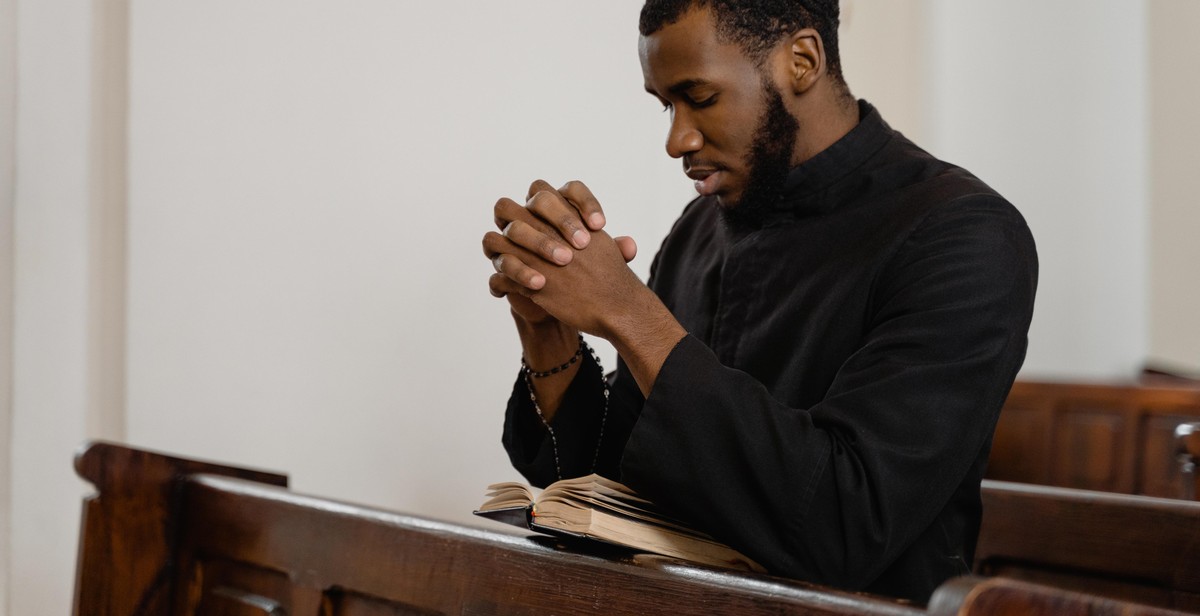Introduction: Love and Spirituality in Relationships
Love is a powerful emotion that has the ability to transform our lives in countless ways. It can bring us immense joy and happiness, but it can also cause pain and heartache. Spirituality, on the other hand, is the belief in something greater than ourselves, a force that guides and supports us through life’s ups and downs.
When it comes to relationships, both love and spirituality play a significant role in shaping our experiences. Our beliefs and values about love and spirituality can impact the way we approach relationships, the way we communicate, and the way we handle challenges and conflicts.
Why Love and Spirituality Matter in Relationships
Love and spirituality are intertwined in many ways. For some, spirituality is a foundation for their understanding of love and relationships. For others, love is a means of experiencing spirituality. Regardless of how we view the connection between love and spirituality, it is clear that both are essential components of healthy and fulfilling relationships.
In this article, we will explore the ways in which our beliefs and values about love and spirituality impact our relationships. We will delve into the importance of self-awareness, communication, and empathy in building strong and meaningful connections with others.
- How our beliefs and values about love and spirituality impact our relationships
- The importance of self-awareness in relationships
- The role of communication in building strong connections
- The power of empathy in fostering intimacy and understanding
By examining the interplay between love and spirituality, we can gain a deeper understanding of ourselves and our relationships. So, let’s dive in and explore the fascinating connection between love and spirituality in relationships.

Beliefs About Love
Our beliefs shape our definition of love and how we approach relationships. They can be influenced by our cultural, religious, and personal experiences. Understanding our beliefs about love can help us navigate relationships and create healthier connections.
How Your Beliefs Shape Your Definition of Love
Our beliefs about love can be shaped by our upbringing, past relationships, and societal norms. For example, someone who grew up in a household where love was expressed through acts of service may have a different definition of love than someone who grew up in a household where love was expressed through physical touch.
Our beliefs about love can also be influenced by media and popular culture. Romantic comedies and love songs often portray an idealized version of love that may not be realistic or healthy. This can lead to unrealistic expectations and disappointment in real-life relationships.
The Impact of Cultural and Religious Beliefs on Love
Cultural and religious beliefs can also shape our beliefs about love. For example, in some cultures, arranged marriages are the norm and love may not be a factor in the decision to marry. In other cultures, physical touch and public displays of affection may be frowned upon.
Religious beliefs can also impact our beliefs about love and relationships. Some religions may prioritize the importance of marriage and family, while others may encourage celibacy or discourage same-sex relationships.
| Culture/Religion | Beliefs About Love |
|---|---|
| Indian | Arranged marriages are common and love may not be a factor in the decision to marry. |
| Japanese | Physical touch and public displays of affection are often frowned upon. |
| Christianity | Marriage and family are highly valued and same-sex relationships may be discouraged. |
Understanding the impact of cultural and religious beliefs on love can help us respect and navigate differences in relationships.

Beliefs About Spirituality
Our beliefs about spirituality, whether we are religious or not, can greatly impact our relationships. Understanding our personal spiritual beliefs can help us navigate the complexities of love and relationships.
Understanding Your Personal Spiritual Beliefs
Spirituality is a deeply personal and subjective experience. It can be influenced by cultural, familial, and societal factors, as well as personal experiences and beliefs. Some people may identify as religious, while others may not subscribe to any particular religion or belief system.
Regardless of our specific beliefs, it is important to understand how they shape our worldview and impact our relationships. For example, if we believe in the power of forgiveness and redemption, we may be more likely to give our partner a second chance after a mistake or transgression. On the other hand, if we believe in strict adherence to rules and punishment for wrongdoing, we may be less forgiving and more likely to end a relationship over a perceived violation.
The Role of Spirituality in Relationships
Spirituality can play a significant role in our relationships, providing a foundation of shared values and beliefs that can strengthen the bond between partners. For some, spirituality may involve a shared practice, such as prayer or meditation, that can deepen their connection and sense of intimacy.
However, differences in spiritual beliefs can also create challenges in a relationship. If one partner is deeply religious and the other is not, it may be difficult to reconcile their differing views on important issues such as marriage, family, and morality. Communication and mutual respect are key in navigating these differences and finding common ground.
- Our beliefs about spirituality can greatly impact our relationships.
- Understanding our personal spiritual beliefs can help us navigate the complexities of love and relationships.
- Spirituality is a deeply personal and subjective experience.
- The role of spirituality in relationships can provide a foundation of shared values and beliefs that can strengthen the bond between partners.
- Differences in spiritual beliefs can create challenges in a relationship, but communication and mutual respect are key in finding common ground.
The Intersection of Love and Spirituality
Love and spirituality are interconnected and have a profound impact on each other. Our spiritual beliefs shape our relationship expectations and influence the way we approach love and romantic relationships. In this section, we will explore how your spiritual beliefs impact your relationship expectations, the role of love in spiritual growth, and the importance of shared beliefs in a relationship.
How Your Spiritual Beliefs Impact Your Relationship Expectations
Our spiritual beliefs play a significant role in shaping our expectations for romantic relationships. For example, if you believe in the concept of soulmates, you may expect to find one perfect partner who completes you. On the other hand, if you believe in the idea of multiple soulmates, you may be more open to the idea of dating and exploring different relationships.
Similarly, if you believe in the concept of unconditional love, you may expect your partner to love you unconditionally, flaws and all. However, if you believe in the idea of conditional love, you may expect your partner to love you only if you meet certain conditions or expectations.
The Role of Love in Spiritual Growth
Love is an essential component of spiritual growth. When we love someone, we open ourselves up to vulnerability and allow ourselves to connect with others on a deeper level. This connection can help us grow spiritually and become more compassionate, empathetic, and understanding individuals.
Furthermore, love can also help us connect with a higher power or divine presence. In many spiritual traditions, love is seen as a pathway to enlightenment and a way to connect with the divine.
The Importance of Shared Beliefs in a Relationship
Shared beliefs are crucial in a relationship, especially when it comes to spirituality. Having shared beliefs can help couples navigate challenging situations and provide a strong foundation for their relationship.
Furthermore, sharing spiritual beliefs can help couples connect on a deeper level and create a sense of shared purpose and meaning in their relationship. This can be particularly important during times of stress or difficulty, as it can provide a source of comfort and support.
- Overall, the intersection of love and spirituality is complex and multifaceted. Our spiritual beliefs can shape our expectations for romantic relationships, while love can play a significant role in our spiritual growth. Additionally, having shared beliefs can provide a strong foundation for a relationship and help couples connect on a deeper level.

Challenges and Solutions
When it comes to relationships, differences in beliefs about love and spirituality can present unique challenges. Here are some common challenges and solutions for navigating them:
Navigating Differences in Beliefs
It’s not uncommon for partners to have different beliefs about love and spirituality. This can range from differing religious beliefs to varying ideas about the meaning of love. It’s important to approach these differences with curiosity and respect, rather than judgment or defensiveness.
One solution is to have open and honest conversations about your beliefs. Seek to understand your partner’s perspective and share your own in a non-confrontational way. It’s okay to agree to disagree, but finding common ground can help build a stronger foundation for your relationship.
Finding Common Ground in Love and Spirituality
Despite differences in beliefs, it’s possible to find common ground in love and spirituality. This can involve exploring shared values and beliefs, such as a shared belief in the importance of kindness or compassion.
Another solution is to be open to learning from your partner’s beliefs. This doesn’t mean you have to adopt their beliefs as your own, but it can help you gain a deeper understanding of their worldview and strengthen your connection.
The Importance of Open Communication
Open communication is key when it comes to navigating differences in beliefs about love and spirituality. This means being willing to listen to your partner without judgment and expressing your own thoughts and feelings in a respectful way.
It’s also important to check in with each other regularly to ensure that your beliefs are still aligned and that you’re both feeling heard and understood. This can help prevent misunderstandings and build a stronger, more resilient relationship.
Overall, navigating differences in beliefs about love and spirituality requires openness, curiosity, and a willingness to communicate. By approaching these challenges with respect and compassion, you can build a stronger, more meaningful relationship with your partner.
Conclusion
Love and spirituality are two powerful forces that can greatly impact our relationships. By understanding how our beliefs and values shape our perceptions and actions, we can create more fulfilling and meaningful connections with others.
When we approach relationships with a spiritual mindset, we open ourselves up to deeper levels of intimacy, compassion, and understanding. We recognize that our partners are not just physical beings, but spiritual beings with unique paths and journeys.
It’s important to remember that spirituality is a personal journey and there is no one-size-fits-all approach. However, some common practices such as mindfulness, gratitude, and self-reflection can help us cultivate a deeper connection with ourselves and others.
Ultimately, the power of love and spirituality lies in our ability to connect with something greater than ourselves. When we approach relationships with this mindset, we bring more love, kindness, and positivity into the world.
Key takeaways:
- Our beliefs and values shape our perceptions and actions in relationships
- A spiritual mindset can lead to deeper levels of intimacy, compassion, and understanding
- Spirituality is a personal journey and there is no one-size-fits-all approach
- Mindfulness, gratitude, and self-reflection can help us cultivate a deeper connection with ourselves and others
- The power of love and spirituality lies in our ability to connect with something greater than ourselves
| Love and Spirituality: | How Your Beliefs Impact Your Relationships |
| Article by: | [Your Name] |
